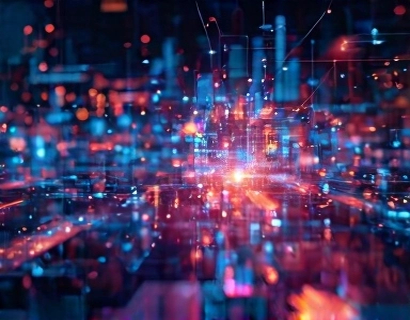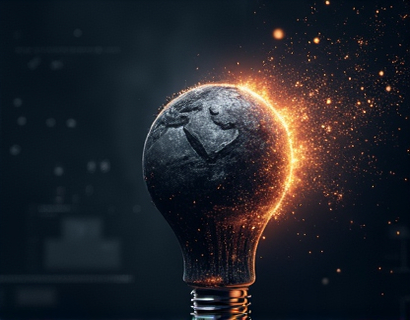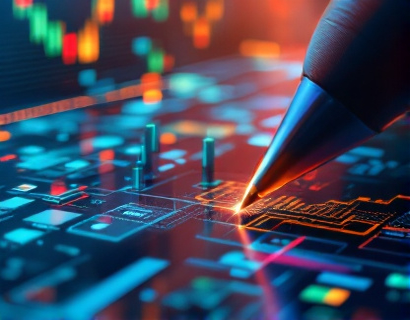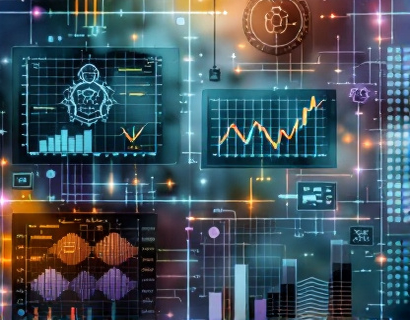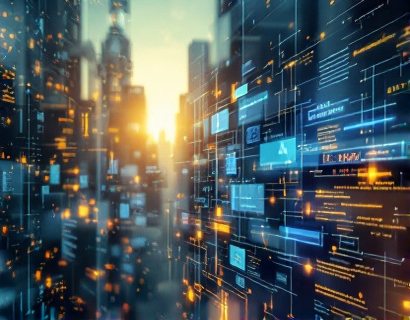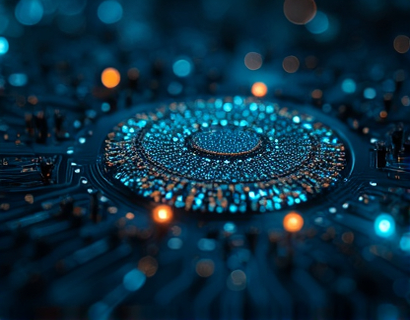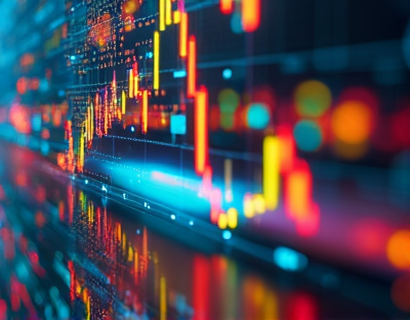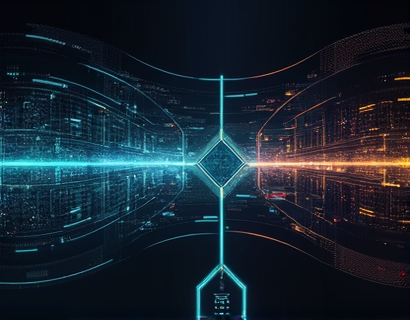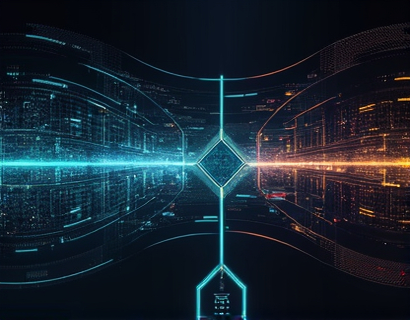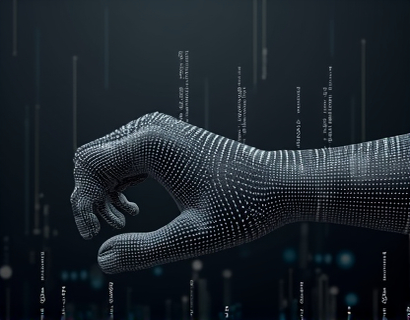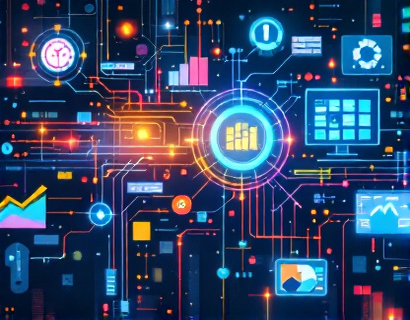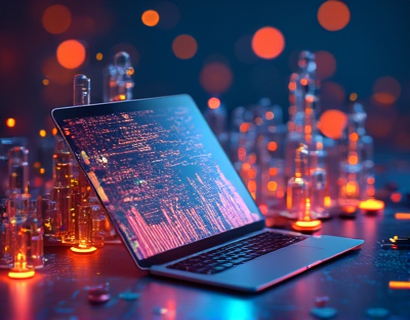AI and Crypto: Transforming Digital Experiences through Decentralized Innovation
The intersection of artificial intelligence (AI) and cryptocurrency is giving rise to a new era of digital transformation. This synergy is not only revolutionizing how we interact with digital platforms but also opening up unprecedented growth opportunities in the tech landscape. As we delve into this topic, it's essential to understand how decentralized innovation is reshaping user interactions and creating new paradigms for digital experiences.
The traditional centralized models of digital services are being challenged by decentralized applications (dApps) that leverage blockchain technology. These dApps are designed to operate on a peer-to-peer network, eliminating the need for intermediaries and enhancing security, transparency, and user control. The integration of AI into these decentralized systems further amplifies their capabilities, enabling more intelligent, adaptive, and personalized user experiences.
Decentralized Innovation: A New Paradigm
Decentralized innovation represents a fundamental shift from the centralized architectures that have dominated the digital world for decades. In a centralized system, a single entity or a small group of entities control the data, processes, and decision-making. This model, while efficient in certain contexts, has several drawbacks, including single points of failure, lack of transparency, and limited user autonomy.
Decentralized systems, on the other hand, distribute control across a network of nodes, each participating in the validation and maintenance of the system. Blockchain technology is the cornerstone of this decentralization, providing a secure, immutable ledger for transactions and data storage. This distributed nature ensures that no single entity can manipulate the system, thereby enhancing trust and reliability.
AI in Decentralized Systems
The integration of AI into decentralized systems brings a new level of intelligence and automation. AI algorithms can process vast amounts of data, identify patterns, and make predictions, all of which can be leveraged to enhance the functionality and user experience of dApps. For instance, AI can be used to optimize resource allocation, improve security measures, and personalize user interactions within a decentralized environment.
One of the key benefits of AI in decentralized systems is its ability to operate autonomously. Smart contracts, which are self-executing contracts with the terms directly written into code, can be enhanced with AI to make decisions based on real-time data and complex conditions. This autonomy reduces the need for human intervention, making the system more efficient and responsive.
Enhanced User Interactions
Decentralized applications powered by AI are redefining user interactions in several ways. Personalization is a significant area of improvement, as AI can analyze user behavior and preferences to tailor experiences to individual needs. This level of customization is particularly valuable in decentralized platforms where users have more control over their data and interactions.
Moreover, AI-driven chatbots and virtual assistants can provide seamless and intuitive support within dApps. These AI-powered agents can handle a wide range of tasks, from answering queries to facilitating transactions, all while maintaining the decentralized and secure nature of the platform. This not only enhances user satisfaction but also reduces the burden on human support teams.
Security and Privacy
Security and privacy are paramount in the realm of decentralized technology and AI. Blockchain's inherent security features, combined with AI's advanced encryption and anomaly detection capabilities, create a robust defense against cyber threats. AI can monitor network activity in real-time, identifying and mitigating potential security breaches before they occur.
Privacy is another critical aspect, as decentralized systems aim to give users greater control over their personal data. AI can help implement privacy-preserving techniques such as differential privacy and homomorphic encryption, ensuring that user data remains confidential while still being useful for AI algorithms. This balance between utility and privacy is a significant advantage of decentralized AI-powered applications.
New Growth Opportunities
The convergence of AI and decentralized technology is opening up new growth opportunities for businesses and developers. The decentralized economy offers a more open and accessible market, reducing barriers to entry and fostering innovation. Developers can build and deploy dApps on various blockchain platforms, leveraging AI to enhance their functionality and appeal to a broader audience.
For businesses, the integration of AI and blockchain provides a competitive edge by enabling more secure, transparent, and efficient operations. The ability to create decentralized marketplaces, supply chain management systems, and financial services that are resistant to fraud and manipulation is a significant draw. Moreover, the data generated by these systems can be monetized through AI-driven insights, creating new revenue streams.
Case Studies and Real-World Applications
Several projects and platforms are already demonstrating the potential of AI and decentralized technology. For example, decentralized finance (DeFi) platforms are using AI to improve lending and borrowing processes, risk assessment, and portfolio management. These AI-enhanced DeFi services offer more accurate and dynamic financial solutions compared to traditional methods.
In the realm of supply chain management, decentralized platforms equipped with AI can track products from origin to destination, ensuring transparency and authenticity. AI algorithms can predict demand, optimize inventory, and detect fraudulent activities, making the supply chain more efficient and trustworthy.
Another promising area is decentralized healthcare, where AI can analyze medical data stored on blockchain to provide personalized treatment recommendations. This not only enhances patient care but also ensures that sensitive health information is securely managed and compliant with regulations.
Challenges and Considerations
Despite the numerous benefits, the integration of AI and decentralized technology is not without challenges. Scalability remains a significant issue, as blockchain networks can struggle to handle high volumes of transactions and data processing required by AI algorithms. Solutions such as layer 2 protocols and sharding are being developed to address these scalability concerns.
Interoperability is another challenge, as different blockchain platforms and AI systems need to work seamlessly together. Standardization and open protocols are essential to facilitate this interoperability, enabling a more connected and efficient ecosystem.
Regulatory uncertainty is also a factor to consider. As decentralized and AI-driven technologies evolve, regulatory frameworks are still catching up. Ensuring compliance while maintaining the decentralized nature of these systems requires careful navigation and collaboration with regulatory bodies.
Future Outlook
The future of AI and decentralized technology is bright, with ongoing advancements promising to overcome current challenges and unlock new possibilities. As blockchain networks become more scalable and interoperable, the potential for AI to enhance decentralized applications will continue to grow. The synergy between these technologies is set to drive innovation across various industries, from finance and healthcare to entertainment and beyond.
For tech professionals and enthusiasts, staying informed about the latest developments in AI and decentralized technology is crucial. The intersection of these fields is not only transforming digital experiences but also creating new opportunities for those who embrace and understand these evolving technologies. By leveraging the power of AI and blockchain, we can build a more secure, transparent, and user-centric digital world.





